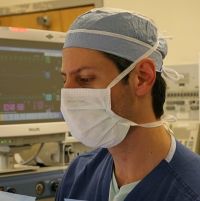With nearly 355,000 confirmed COVID-19 cases globally (as of 23 March), hospitals are struggling to continue operations with limited or unavailable supplies, such as personal protective equipment (PPE) or ventilators.
You may also like: WHO Calls to ‘Test, Test, Test’ amid Growing Restrictive Measures
‘rescEU’ Stockpiling
On 19 March, the European Commissionmade an unprecedented decision to create a strategic rescEU stockpile of medical equipment to help EU countries in the context of the COVID-19 pandemic – the “first ever common European reserve of emergency medical equipment” as President Ursula von der Leyen put it.
Medical
equipment part of the stockpile will include items such as:
- intensive care medical equipment (ventilators)
- PPE such as reusable masks
- vaccines and therapeutics
- laboratory supplies.
The
stockpile will be hosted by one or several member states and the EU will
finance 90% of the cost. The initial EU budget of the stockpile is €50 million.
The equipment’s distribution will be managed by the Emergency Response Coordination
Centre. According
to the Financial Times, the EU’s decision was made after
member states, such as Spain and Italy, complained of shortages and lack of support
from Brussels.
In
addition to this, steps are being taken to stimulate the domestic production by
existing manufacturers, facilitate imports and activate alternative ways of
producing equipment. To achieve these, the Commission made an agreement with the
European Committee for Standardization (CEN) and the European Committee for
Electrotechnical Standardization (CENELEC) to make available a number of
European standards for certain medical devices and personal protective
equipment. This should help both EU and third-country companies to swiftly
start production and place products on the internal market. The standards that
are made available cover common filtering masks, medical gloves and protective
clothing.
The
standards are available for free download from the websites of CEN national members.
Around the World
The U.S. has the third highest count of COVID-19 cases globally, behind only China and Italy: 35,530 confirmed cases with 473 deaths as of 23 March. President Trump on 20 March invoked the Defense Production Act, which could be used to increase the supply of protective gear. New York is the epicentre of the disease in the country, with half of the cases nationally and 5% globally. The situation with PPE and medical equipment in some U.S. hospitals is dire. On 22 March, the Food and Drug Administration (FDA) announced that hospitals can repurpose machines they already have to serve as ventilators, ie allowing ventilators to be used beyond their shelf life and the long-term use of ventilators intended for other environments. Earlier, the Centers for Disease Control and Prevention outlined its‘Strategies for optimising the supply of PPE.’
China and India are
two of the main global suppliers of PPE and medical equipment. India banned
exports of certain masks, ventilators, raw material for masks and coveralls on
19 March. This added to the previous ban on exports of all personal protection
equipment including clothing and masks used in healthcare activities, such as
N-95 masks. At the same time, measures to stimulate domestic production of
medical devices were announced.
Similar bans are in place in Taiwan, Malaysia
and elsewhere.
In the meantime, China
is restarting the production of medical supplies. Although the exports from there
are not officially
banned, issues with shipping to other destinations persist.
As part of goodwill packages, the Chinese government has
begun some shipments to destinations such as Iran,
Serbia,
Lithuania
and Italy.
It also sent a team of medical experts who handled the COVID-19 outbreak in
China, to Italy.
There are, however, opinions that China is choosing the recipients of its help carefully,
in a way that has already been dubbed as ‘coronavirus
diplomacy’ (not without its embarrassing episodes).
Help from the Industry
Industry and research groups are looking into ways of increasing or switching to the production of necessary equipment. In the U.S., President Donald Trump entitled Ford, GM and Tesla to make ventilators to help alleviate a shortage amid the COVID-19 pandemic. There are about 160,000 ventilators in the country and another 12,700 in the National Strategic Supply, the New York Times reported.
Similar pledges are made in the EU. Automotive manufacturers in
hard-hit Italy, which owns a large share of global automotive production, such
as Ferrari and Fiat, stated that
they can produce important medical devices such as the ventilator equipment.
The 3D printing community have already begun
to respond to the global crisis by volunteering their respective skills to ease
the pressure on supply chains and governments. In one recent example,
Michigan Tech Open Sustainability Technology (MOST) Lab has joined the Michigan
Tech Open Source Initiative in an attempt to create 3D-printed, open-source
ventilators and other medical hardware to overcome COVID-19.
Big and smaller businesses are donating money and resources
to support healthcare in its fight with the coronavirus. Thus, Facebook has donated 720,000 masks from the company's
emergency reserve to US health workers, Jack Ma and Alibaba Foundations have pledged
to donate COVID-19 Medical Equipment to African Union Member States, and Christian
Siriano, a famous New York fashion designer, said his
company would be making masks “instead of cocktail dresses and evening gowns.”
As of 23
March, there were 354,677 confirmed COVID-19 cases with 15,436 deaths. 100,436
people have recovered from the illness. South
Koreahas reported its lowest number of new cases in weeks, and
in Germany, with 22,672
cases and 86 deaths, there may be signs of the infection curve’s flattening, according to the Robert Koch Institute.
Image credit: iStock



























